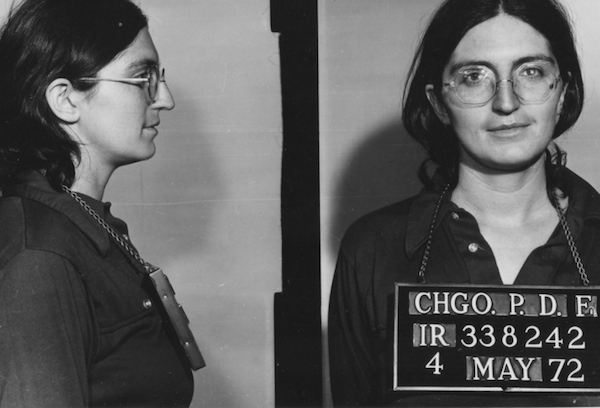Movie review by Greg Carlson
Directors Tia Lessin and Emma Pildes, anticipating the recent Supreme Court decision that would overturn Roe v. Wade, began work on their documentary “The Janes” in 2019. The movie, now available to view on HBO Max following a January premiere at the 2022 Sundance Film Festival (which also hosted Phyllis Nagy’s “Call Jane” and Audrey Diwan’s “Happening”), chronicles an important moment in the still-unfolding history of abortion rights in the United States. Filled with candid and unflinching on-camera interviews with the women – and a handful of men – directly involved, “The Janes” joins the growing collection of valuable media records on the practice.
Officially the Abortion Counseling Service of Women’s Liberation, but more popularly just called Jane, the Chicago-based group provided an estimated 11,000 safe abortions from 1969-1973. Lessin and Pildes combine well-positioned stock footage with more specific archival imagery to illustrate the recollections and listen to the voices of their interview subjects, several of whom punctuate the testimony with a potent visual aid: the index cards used to keep track of the information – financial, medical, and otherwise – of the rapidly-increasing numbers of primarily low-income clients. One card notes, “Afraid of pain.” Another says, “Be cautious, father is cop.”
Some of the interviewees elect to share only a first name, but Lessin and Pildes smartly frame the speakers in well-lit, detailed close-up, often in the cozy surroundings of living spaces and kitchens. The approach underlines the common and the everyday without diminishing the legacies of action. Some of the women are known to feminist scholars; all are remarkable to the filmmakers, who select compelling thoughts from Judith Arcana, Marie Leaner, Martha Scott, Eleanor Oliver, Peaches, Sheila, Eileen, Laura Kaplan, and Heather Booth, to name a few.
In 2018, Rachel Carey’s “Ask for Jane” dramatized the story of the Chicago movement. Many films, past and present, have also centralized abortion stories or included abortion as a subplot. Spanning mainstream studio fare and independent releases, fiction and nonfiction, and comedy and drama (and beyond), the growing list includes “Fast Times at Ridgemont High” (1982), “The Last American Virgin” (1982), “Dirty Dancing” (1987), “Story of Women” (1988), “Citizen Ruth” (1996), “Vera Drake” (2004), “The Abortion Diaries” (2005), “I Had an Abortion” (2005), “Lake of Fire” (2006), “4 Months, 3 Weeks and 2 Days” (2007), “Obvious Child” (2014), “Grandma” (2015), “Portrait of a Lady on Fire” (2019), “Never Rarely Sometimes Always” (2020), “Unpregnant” (2020), “Plan B” (2021) and many more.
Class and race are thoughtfully addressed in “The Janes.” Dr. T.R.M. Howard and so many of the film’s other fascinating side-trips could easily sustain separate feature-length studies. Leaner’s insights, which include linking the civil rights movement to her abortion activism, are among the movie’s highlights (“I said here’s an opportunity, for me to take a stand in defining ‘Who am I as a person? What do I stand for?’”). Another sharp segment considers the unwelcome chauvinism and misogyny of presumed movement allies and the Black Panthers.
Lessin and Pildes make a series of inspired choices in the design and structure of “The Janes.” The arrests of the abortion providers don’t occur until there are only 25 minutes left in the 101-minute film. By emphasizing the organizational workings and personal motivations of the members of the Jane Collective for the majority of the running time, the filmmakers demystify the clandestine mythology of Jane in part by exploring the boundaries between the implications of the term “underground” and the accessibility of the network – which hid in plain sight on bulletin boards and was shared via word-of-mouth.
